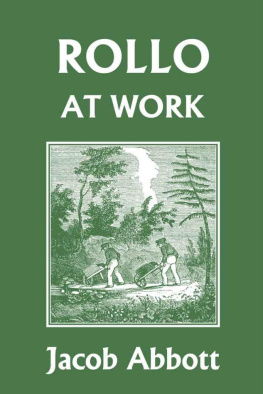Action Learning
in Social Work
Action Learning in
Social Work
CHRISTINE ABBOTT
AND PAUL TAYLOR
Series Editors: Steven Keen and Keith Brown
Learning Matters
An imprint of SAGE Publications Ltd
1 Olivers Yard
55 City Road London EC1Y 1SP
SAGE Publications Inc.
2455 Teller Road
Thousand Oaks, California 91320
SAGE Publications India Pvt Ltd
B 1/I 1 Mohan Cooperative Industrial Area
Mathura Road
New Delhi 110 044
SAGE Publications Asia-Pacific Pte Ltd
3 Church Street
#1004 Samsung Hub
Singapore 049483
Editor: Luke Block
Development editor: Lauren Simpson
Production controller: Chris Marke
Project management: Swales & Willis Ltd,
Exeter, Devon
Marketing manager: Tamara Navaratnam
Cover design: Wendy Scott
Typeset by: C&M Digitals (P) Ltd, Chennai,
India
Printed and bound by CPI Group (UK) Ltd,
Croydon, CR0 4YY
2013 Christine Abbott and Paul Taylor
First published in 2013
Apart from any fair dealing for the purposes of research or private study, or criticism or review, as permitted under the Copyright, Design and Patents Act, 1988, this publication may be reproduced, stored or transmitted in any form, or by any means, only with the prior permission in writing of the publishers, or in the case of reprographic reproduction, in accordance with the terms of licences issued by the Copyright Licensing Agency. Enquiries concerning reproduction outside these terms should be sent to the publishers.
Library of Congress Control Number: 2013940926
British Library Cataloguing in Publication Data
A catalogue record for this book is available from the British Library
ISBN 978-1-4462-7534-4
ISBN 978-1-4462-7535-1 (pbk)
Contents
List of figures
List of tables
Foreword
All texts in the Post-Qualifying Social Work series have been written by people with a passion for excellence in social work practice. They are primarily written to help social work practitioners in their day-to-day roles but they will also be useful for any social worker undertaking more formal professional development.
As the books in this series are written by practitioners, they will also be of value to social work students as they are designed to inform, inspire and develop social work practice.
We trust you will find this text of real value to your practice as a social worker and that this, in turn, has a real impact on those we serve.
Dr Steven Keen and Professor Keith Brown
National Centre for Social Work, Bournemouth University
About the authors
Christine Abbott is an action learning practitioner, author and academic. She is an associate of the Open University, facilitating undergraduate and postgraduate modules. Christine is a partner in the Centre for Action Learning Facilitation (C-ALF) which is partnering with Skills for Care UK to support action learning in social work. Christine works internationally in both the public and private sectors and is the co-author of the qualification standards for action learning facilitation. Christine is interested in the development of leaders and managers and is a former chairman and current non-executive director and trustee of the Institute of Leadership and Management.
Paul Taylor currently works for Southend Borough Council as a lead social worker for NHS Continuing Healthcare and ASYE Manager for adult services. Paul is also an associate lecturer for the University of Essex and an associate with the Centre for Action Learning Facilitation (C-ALF). Paul has a strong interest in emotional and social intelligence, transactional analysis and critical analysis and reflection. In his spare time, he enjoys training for and competing in middle- and long-distance triathlon and marathon-distance races.
Acknowledgements
We would like to acknowledge the many social workers who contributed with their ideas and experiences of action learning to the writing of this book.
Thanks also to Roger and Jess our own personal comrades in adversity.
Introduction
Christine and Paul met in 2010 on a programme to support practice educators and social work managers in facilitating action learning to support newly qualified social workers. Skills for Care had commissioned Christine to deliver the programme and Paul was a participant. It was a challenging start Paul thought that he was attending a mentoring programme for newly qualified social workers and was not convinced this programme would meet his needs.
It was during this programme and subsequently when Pauls curiosity was sufficiently aroused that he attended the follow-up Institute of Leadership and Management Certificate in Action Learning facilitation. With Christine and Mike Pedler, co-director of the Centre for Action Learning Facilitation, conversations developed around the similarity between the principles of action learning and social work practice. They both have at their heart real-time problem solving, getting things done and critical reflection. Skills for Care are promoting action learning as a method of developing critical practitioners, and so this book was born.
We will argue in this book that action learning methodology has strong links with social work problem solving. There are high levels of risk, uncertainty and change in the public sector and, in particular, social work, that require an approach that questions perspective and assumptions and allows workers to feel challenged in a supportive environment as comrades in adversity. The key focus in this book is on critical reflective practice and the action learning approach that aims to empower, support deep learning and promote emotional and social intelligence.
Understanding action learning is a problem in itself, and in this book we have tried both to explain the simplicity and retain the moral purpose of the process or way of working. Reg Revans, the founder of action learning, in his writings reveals the profound nature and often mystery by citing the Bible, Koran and the teachings of Buddha as evidence that the idea is an old one, yet at the same time insisting that it is needed today as a new approach to working and learning.
Action learning involves doing something other than what you are currently doing; learning from real problems in real time means that you are constantly challenging the current norms and operating assumptions of the organisation and your own practice as a social worker. You will see that the purpose of working in an action learning set is to rock the boat of your current thinking, and to reframe the problems you face as a result of the way we do things around here. Those things may lead to good outcomes but action learning helps to uncover the shadow side of the wicked problems. So, for example, you may be in an organisation that uses key performance indicators that focus your energy on those aspects of your work that are measurable, but that very system may result in a lack of quality. Most, if not all, of you will lead busy working lives spent











